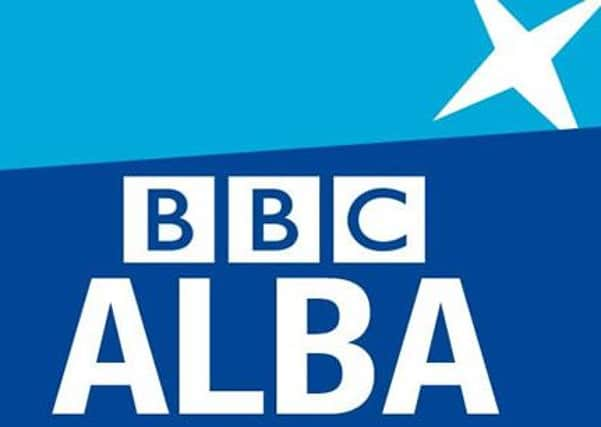Funding cut to Gaelic TV ‘cultural vandalism’


The news wasn’t entirely obvious at first, but when the fine detail of Chancellor George Osborne’s autumn statement was picked over, it was discovered that the Department for Culture, Media and Sport (DCMS) will no longer provide £1m a year to broadcaster BBC ALBA.
Talking to the Gazette about the situation, Donald Campbell, Chief Executive of MG ALBA said: “Naturally we are very disappointed by the loss of UK Government funding.
Advertisement
Hide AdAdvertisement
Hide Ad“We continue to seek other ways for the UK Government to support Gaelic broadcasting and will be meeting with DCMS early next month.
“The renewal of the BBC’s Royal Charter, expected in 2017, offers the best opportunity to secure long-term policy and funding commitments to Gaelic broadcasting and, as such, we are asking the BBC to increase their in-house programming contribution to BBC ALBA from an average of 4.4 hours to 10 hours per week.
“The BBC is obliged by statute to provide 10 hours of high quality programmes per week to Welsh channel S4C, and the new Charter offers the BBC and the UK Government the opportunity to agree a similar commitment to BBC ALBA.”
In the meantime Western Isles MP Angus MacNeil has called on the Secretary of State for Scotland David Mundell to use his cabinet position to reverse the funding decision.
Advertisement
Hide AdAdvertisement
Hide AdMr MacNeil said: “The announcement that the UK Government is cutting all the funding it gives to Gaelic TV is staggering and it again highlights how out of touch Westminster is and unconcerned about Scotland.
“At the same time as it has engaged in cultural vandalism in Scotland, the Tory Government is giving £150 million to museums in London.
“I am writing to the Secretary of State, David Mundell – this decision must be reversed, our oldest national and Celtic language must be supported.”
Comhairle nan Eilean Siar has also highlighted its concerns.
Advertisement
Hide AdAdvertisement
Hide AdChair of the Gaelic Committee, Cllr John A MacIver said: “It is very concerning that the Westminster Government is cutting all of its funding for Gaelic broadcasting.
“The new channel, BBC Alba, has been very successful since it was established back in 2008 and it has helped to promote the language to a wide audience.
“Thousands watch the channel every week with programmes, which are interesting and appealing, adding to the rich heritage and culture of the language.
“We hope that Westminster will look at this again and understand the importance of the channel to Scotland .”
Advertisement
Hide AdAdvertisement
Hide AdAn online petition (here) is opposing the cut and to date has gathered 1,776 supporters, with comments posted endorsing the work of BBC ALBA and condemning the Tory budget move.
One petition respondent says: “BBC Alba is worth every penny. As well as being the only Gaelic channel it is watched by thousands for its sports coverage, especially Shinty.
“Its quality current affairs programming puts its sister station to shame. Its budget is small beer, but its impact is huge. The removal of BBC Alba’s funding is spiteful and unnecessary.”
Angus MacDonald MSP for Falkirk East and Convener of Holyrood’s Cross-Party Group on Gaelic has also called on DCMS to abandon its plans.
Advertisement
Hide AdAdvertisement
Hide AdMr. MacDonald, said: “The decision to remove all UK Government funding for Gaelic broadcasting in Scotland will come as a major blow to BBC Alba and is yet another sign that Scotland is under-served by the public service broadcasting status quo.
“BBC Alba serves an audience of 700,000 people across the country – far outstripping the number of Gaelic speakers in Scotland several times over.
“While the BBC is a world-renowned broadcaster, it is currently under-serving Scotland. TV licence payers in Scotland pay in £335 million ever year – but just £35 million is spent on Scottish TV production. People will rightly ask why the UK Government is cutting funding for a successful public sector broadcaster in the midst of the BBC Charter Review. They should abandon these misguided plans, which will be detrimental to the development of the language and the Scottish creative sector.”